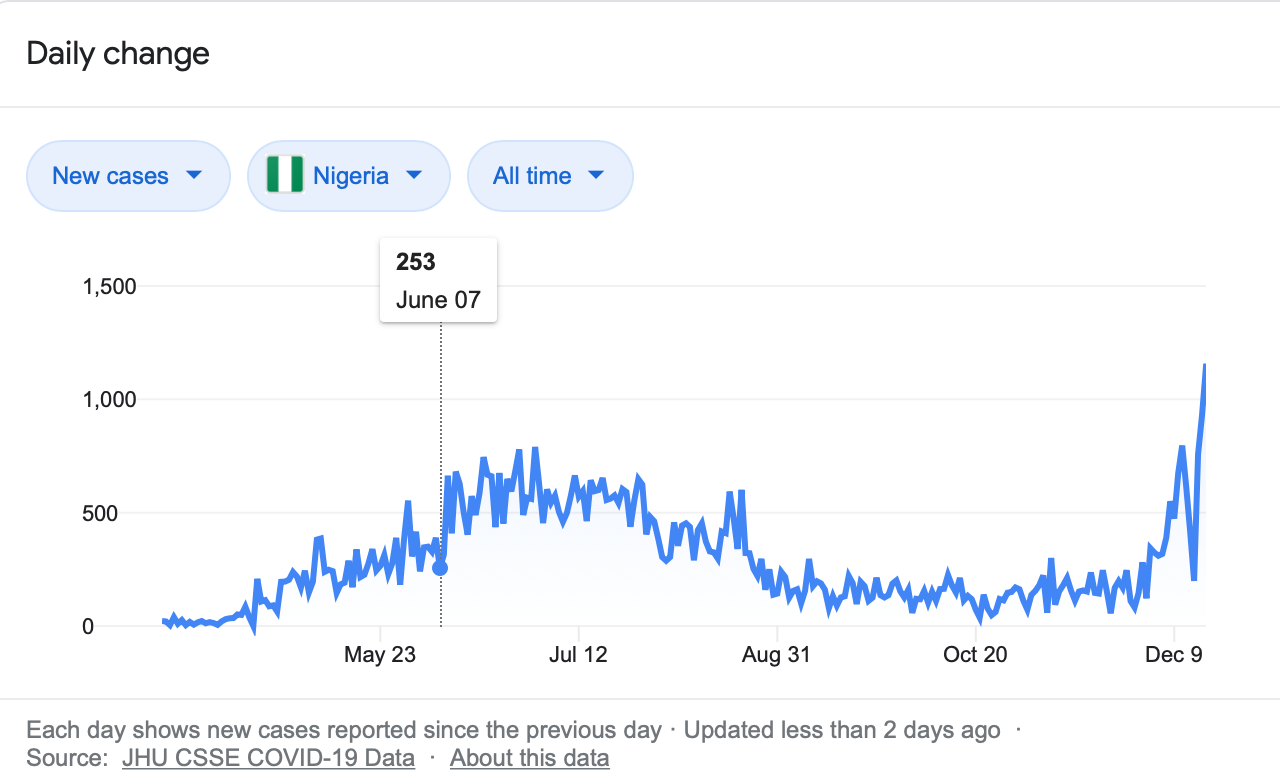SIM/NIN integration: The Impact of the Nigerian Communications Commission's policy
The impact of the recent policy-announcements made by the Nigerian Communications Commission between December 9—18, 2020.

The National Communications Commission (NCC) has asked all mobile subscribers to submit their National Identification Number (NIN) to update their SIM card registration between December 16—30, 2020.
The two-week SIM (Subscriber Identification Module) card and NIN integration exercise come on the heels of the subscriber registration database audit NCC announced on December 9, 2020. The audit aims to verify and ensure mobile network operators comply with the SIM card registration standards and requirement issued by the Federal Ministry of Communications and Digital Economy and the NCC.
And until the subscriber registration database audit is completed, the sale, registration and activation of new SIM cards are suspended. "However, where it is absolutely necessary, exemption may be granted in writing by the Commission following approval from the Federal Government", according to the NCC.
Less than a week later, the Minister of Communications and Digital Economy, Dr Isa Ali Ibrahim Pantami, called for an urgent meeting with stakeholders in the communications industry. The CEOs and management staff of all service providers in the industry alongside the NCC, the National Identity Management Commission (NIMC) and the National Information Technology Development Agency were present at the meeting held on December 14, 2020.
One of the resolutions from the meeting is the integration of SIM and NIN. According to the NCC, after the December 30 deadline, all SIMs without NIN are to be blocked by the network providers.
How to retrieve your NIN and link it with your phone number
To make the submission of NIN easier, the Federal Government has ordered all network providers to cancel the ₦20 they charge subscribers for using the *346# code to retrieve their NIN.
Similarly, the network providers have rolled out USSD codes and web platforms to make the submission process easier.
- MTN: You can either use *785#, visit https://mtnonline.com/nin/ or submit your NIN via the MyMTN App
- Airtel: Dial *121*1# to submit your NIN
- 9Mobile: Dial *200*8# or visit https://9mobile.com.ng/nin
- Globacom: Send "UpdateNIN NIN FirstName LastName" to 109 or visit http://mobileapp.gloworld.com/glonin/home
While subscribers who fail to adhere to the new directive risk being blocked, mobile network operators (MNO) could lose their operating licence.
And in addition to consolidating on the gains of the Sim card registration exercise recorded in September 2019, the Federal Government stated that the new directives are aimed at improving national security following recent escalation in insurgent attacks.
Nigeria’s poorly-timed Policies
There are notable gaps in these new directives, including the timing, impact on the economy and the issue of surveillance.
Since the announcement, Nigerians have expressed misgivings online especially with the requirement to obtain a NIN which has a poor digital capturing process. According to the NIMC, only 42 million out of 200 million Nigerians have been registered. Consequently, millions of mobile subscribers risk being blocked from using their mobile lines under the new stipulation.
Can someone tell NIMC that their digital ID app is leaking private information. I'm pretty sure my name is not Yusuf Sheu
— Nonso Obikili (@nonso2) August 16, 2020
With the increasing rates of Covid-19 infections within the country, the deadline would mean long queues for millions of Nigerians intending to register with NIMC – raising the risk of infections.

But asides the spread of the Covid-19 as a result of large crowds trying to obtain NIN, there is the economic downturn the recent policy exacerbate. According to a post-Covid-19 report by the International Monetary Fund (IMF), under current policies, the Nigerian economy is expected to contract by 3.5% in 2020, with the informal sector contributing over 65% to the country's overall growth.
The telecommunications industry which includes the informal sector contributes a large percent to Nigeria's economic outlook. According to the National Bureau of Statistics (NBS), the telecommunications industry accounted for ₦31.8 trillion ($83.6 billion) to the country’s Gross Domestic Product (GDP) in 2019.
Also more unsettling is the announcement comes off the heels of the #EndSars movement, where the FG has muscled perceived leaders through witch-hunting and arrest- made possible through the illegal surveillance of private data.
Unlike most developed where data is collected on citizens to improve livelihood, Nigeria collects data for illegal surveillance. When quizzed earlier in the year about the data collection process for the digital national identification cards, the Minister of Interior, Ogbeni Rauf Aregbesola, had noted that the database would be constantly updated so people "cannot run away anymore".
Recently, Al Jazeera highlighted a published report by Citizen Lab, which exposed that the Nigerian Defence Intelligence Agency (NDIA) purchased surveillance technology to spy on its citizens call and text messages. According to the report, “at least two entities within the Nigerian state have deployed surveillance products linked to Israel's telecom surveillance company, Circles.
Moving Forward
The SIM card registration suspension and recent directive fall short of the Nigerian Communications Act (NCA), 2003 mandate. Section (2) (1) Chapter 1 of the Acts reads: government would implement programs and plans that promote and ensure the development of the communications industry.
Besides, the Buhari-led administration is notable for its unstable and brute policies, which are initiated and implemented without inclusive dialogue. For example, the border closure implemented in August 2019, to boost Nigerian economy's export, failed to achieve an increase and only stifled economic growth and relationship with neighboring countries. The policy was rescinded this week.
In an earlier submission this year, I advised that the commission focus on its mandate and push for innovative programs and policies that are people-centered. The recent call of the ministry is poorly-timed, due to the short execution period, lack of necessary state apparatus to ease the burden of the process and the risk it poses to the Nigerian people and economy.







Comments ()